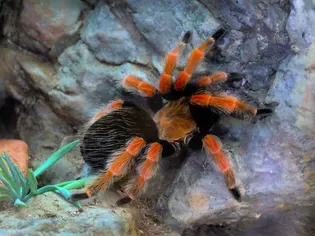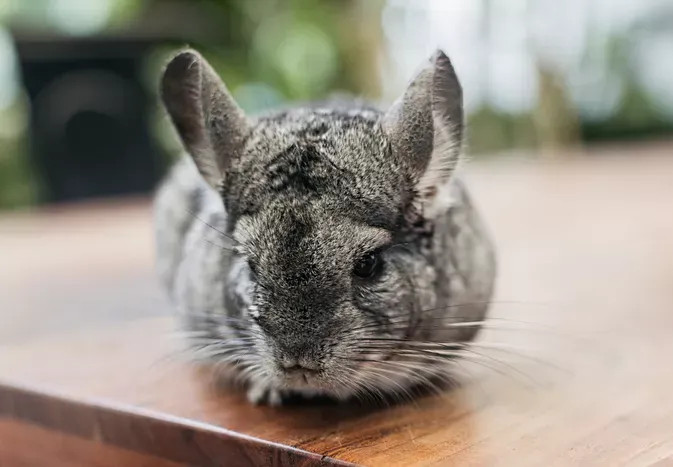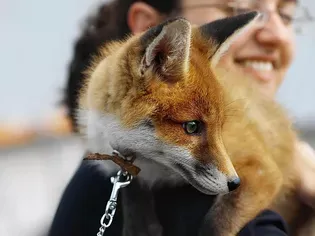Should You Keep a Prairie Dog as a Pet?
Updated on 05/26/24

Title: Uncovering the Secrets of Prairie Dog Ownership: A Comprehensive Guide
Prairie dogs, the comical rodents known for their adorable antics and playful personalities, have captured the hearts of pet enthusiasts for years. However, their unique needs and social nature raise the question: Are prairie dogs suitable companions for every pet owner? Embark on an in-depth exploration of this topic, examining the pros and cons of prairie dog ownership and providing crucial information to aid in your decision-making process.
Chapter 1: Delving into Prairie Dog Characteristics
Before delving into the complexities of pet ownership, it is imperative to understand the inherent nature of prairie dogs. These highly social creatures live in vast underground colonies, forming intricate bonds with their fellow burrow mates. Their social hierarchy dictates their behavior, with dominant individuals asserting their authority and maintaining order within the group.
Understanding their social dynamics is crucial for potential owners, as prairie dogs require constant companionship. Isolating them can lead to profound loneliness and mental distress.
Chapter 2: Exploring the Pros of Prairie Dog Ownership
1. Engaging and Entertaining Companions
Prairie dogs possess an infectious enthusiasm that makes them a joy to observe. Their playful antics, incessant burrowing, and vocalizations create an amusing and stimulating environment. Their curious nature and keen intelligence make them eager learners, capable of performing complex tricks.
2. Enhanced Physical and Mental Stimulation
Owning a prairie dog encourages active involvement and physical engagement. Their playful nature demands ample space for exploration and exercise, necessitating the construction of elaborate burrows and tunnels. The constant interaction and mental challenges they provide foster cognitive development and prevent boredom.
3. Unique Bonding Experiences
Prairie dogs form deep bonds with their human companions when provided with proper care and attention. They crave cuddles, respond to affectionate gestures, and exhibit loyalty towards their owners. The opportunity to nurture and connect with these enchanting creatures can be an incredibly rewarding experience.
Chapter 3: Unveiling the Cons of Prairie Dog Ownership
1. Extensive Time Commitment
Prairie dogs require significant amounts of time, attention, and care. They are highly social beings and cannot be left alone for extended periods without experiencing distress. Owners must be prepared to dedicate a substantial portion of their time to providing companionship and meeting their needs.
2. Specialized Dietary Needs
Prairie dogs have specific dietary requirements that must be strictly adhered to. Their herbivorous diet consists primarily of hay, fresh vegetables, and grains. Ensuring they receive a balanced and nutritious diet requires careful planning and commitment.
3. Potential Health Concerns
Like all animals, prairie dogs are susceptible to various health conditions. While responsible breeders prioritize genetic health, certain ailments can arise due to their burrowing habits and social interactions. Veterinary care for exotic species can be specialized and expensive.
Chapter 4: Assessing Your Suitability for Prairie Dog Ownership
Before embarking on the journey of prairie dog ownership, it is essential to evaluate your lifestyle and readiness for the commitment involved. Consider the following factors:
1. Available Space
Prairie dogs require ample space for burrowing, running, and exploring. A minimum enclosure size of 8 feet by 8 feet by 4 feet is recommended, along with additional space for exercise and play.
2. Financial Stability
Prairie dog ownership can be financially demanding. Initial setup costs, including enclosure construction, food, and veterinary care, can be significant. Ongoing expenses, such as food, bedding, and potential medical treatments, should also be taken into account.
3. Emotional Readiness
Owning a prairie dog requires patience, understanding, and a deep appreciation for their unique nature. They can be challenging pets at times, and owners must be prepared to navigate their social complexities and occasional mischievous behavior.
Chapter 5: Conclusion: Making an Informed Decision
The decision of whether or not to keep a prairie dog as a pet is a momentous one. By carefully weighing the pros and cons outlined in this comprehensive guide, you can determine if prairie dog ownership aligns with your lifestyle, capabilities, and aspirations.
Prairie dogs can be extraordinary companions, providing years of joy and entertainment. However, their specific needs and unique nature demand a dedicated and responsible owner. Only by fully embracing the commitment involved can you create a fulfilling and harmonious environment for both you and your furry friend.
Explore More Pets

Exotic Pet Species
Should You Keep a Chimpanzee as a Pet?

Exotic Pet Species
Should You Keep a Raccoon as a Pet?

Exotic Pet Species
How to Care for a Pet Mexican Red-Knee Tarantula

Exotic Pet Species
12 Best Exotic Pets for Apartment Living

Exotic Pet Species
Best Foxes to Keep as Pets

Exotic Pet Species
Should You Keep a Northern Flying Squirrel as a Pet?

Exotic Pet Species
Should You Keep Stick Insect as a Pet?

Exotic Pet Species
Should You Keep a Big Cat as a Pet?
